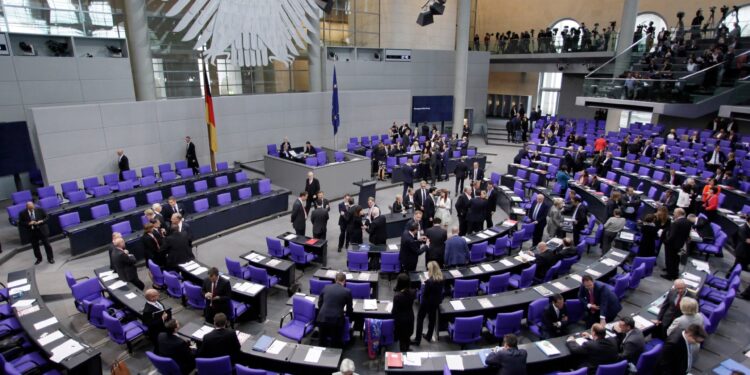The estimates of the German Economy Institute (iW) indicated that reducing the size of the German parliament (Bundestag) as a result of reforming the election law that would provide about 125 million euros (131 million dollars) annually.
The largest individual items include these savings:
- Reducing expenses on the salaries of deputies by 13 million euros (13.64 million dollars)
- Reducing the financing provided to the parliamentary bloc by up to 20 million euros (21 million dollars)
- Reducing the salaries of deputies by 44 million euros (46.15 million dollars).
- The savings will also include many other items, such as office equipment or travel expenses.
It is noteworthy that, according to the reform of the election law, the number of members of the upcoming German parliament will be reduced at no more than 630 deputies, while the number of deputies in Parliament in 2021 reached 736 deputies.
At the same time, the German Institute of Economy noted that the amount of 125 million euros is not sufficient to solve the urgent problems in the country, but called for not to underestimate the symbolic impact of this step.
“The politicians prove that they are ready to take austerity measures even on themselves,” the financial expert at the institute, Tobias Heinsse, said, adding that “this may be a positive sign for the next four years, which will be full of political challenges.”
On February 23, Germany will witness general elections that are in the economic nature, after the difference in economic trends caused disputes between the components of the ruling coalition. Germany’s economy shrinks for the second year in a row with increasing challenges that continue to pressure it.



